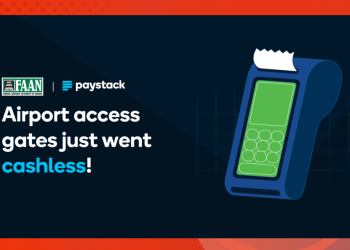A startup’s name is often its first promise to the world. It signals what you do, who you are, and where you hope to go. Yet many founders underestimate how much a name can either propel or paralyze growth. A name that worked for a local MVP may become confusing when scaling. A name born from inside jokes may not travel. And sometimes mergers, pivots, or expansions demand a new identity altogether.
Across Africa and beyond, smart founders understand that renaming is not admitting failure. It is engineering clarity, trust, and scalability. Below are ten examples, especially from African markets, showing how renaming, rebranding, or merging unlocked growth and global relevance.
Sabunta + Kasuwa → Jumia
In Nigeria, e-commerce platforms Sabunta and Kasuwa merged under one unified brand: Jumia. This consolidation removed customer confusion, streamlined operations, and created a single powerhouse capable of expanding across multiple African countries. The unified name gave investors and consumers one brand to trust, propelling Jumia to continental dominance.
TeamApt → Moniepoint
Originally founded as TeamApt, the company rebranded to Moniepoint after its payment product outgrew the parent brand. The rebrand reflected a pivot from software development for banks to powering financial inclusion for small businesses across Africa. Today, Moniepoint has become one of Nigeria’s largest fintechs, serving millions of merchants and customers.
MFS Africa → Onafriq
Pan-African payments giant MFS Africa rebranded to Onafriq in 2023 to signal its evolution beyond mobile financial services into a broader digital finance infrastructure. The name change captured a unifying pan-African identity and a future-oriented vision, positioning the company as a continental leader in cross-border payments and fintech innovation.
Sokowatch → Wasoko
In East Africa, Sokowatch, a last-mile distribution startup, transformed into Wasoko as it expanded operations from Kenya into multiple African markets. The new name, which means “people of the market,” resonated deeply with its target audience and reflected its mission to empower informal retailers across the continent.
Aboki Africa → Grey
The fintech originally known as Aboki Africa rebranded to Grey in 2022 to better align with its global ambitions. As the company scaled beyond Nigeria, it needed a name that appealed to international audiences while maintaining simplicity and relatability. The new identity positioned Grey as a modern, borderless financial services brand for Africans everywhere.
Etisalat Nigeria → 9mobile
After regulatory and ownership changes, Etisalat Nigeria rebranded to 9mobile to preserve its market share and reset public confidence. The new name represented continuity while signalling innovation, youth, and a digital-first identity. The move helped the company rebuild customer trust and maintain relevance in a highly competitive telecom sector.
Backrub → Google
Before becoming a global giant, Google began as Backrub, a Stanford project. The new name Google, inspired by the term “googol,” perfectly embodied the company’s mission to organize the world’s information. It became one of the most successful renames in tech history.
AirBed & Breakfast → Airbnb
The original name AirBed & Breakfast, was literal but limiting. As the business expanded beyond shared rooms to homes, lodges, and experiences, the simplified name Airbnb gave it instant recognisability, global adaptability, and emotional warmth.
UberCab → Uber
UberCab began as a black-car app in San Francisco. Dropping “Cab” not only made it sleek but expanded its vision. The new name, Uber, became synonymous with modern mobility and later opened doors to food delivery, freight, and other services.
Twitter → X
In 2023, Twitter rebranded to X, representing its pivot toward becoming an “everything app” for communication, commerce, and finance. Though controversial, the rebrand embodied the ambition to reshape how digital platforms integrate across industries.
Lessons for African Founders
When to Consider a Rename
- Your current name restricts expansion or feels too local
- A merger or acquisition creates overlapping brands
- The name is difficult to pronounce across cultures or markets
- Your startup has outgrown its original mission or audience
- Market research shows low brand recall or misalignment
How to Rebrand Successfully
- Test options with users and investors before rollout
- Retain visual or linguistic familiarity to protect brand equity
- Secure digital assets early, including domains, handles, and trademarks
- Craft a compelling story about why the change matters
- Track metrics post-launch, including retention and brand sentiment
The Power of the Right Name
Your startup’s name is not just a label. It is a strategy. A good name makes your brand discoverable, scalable, and memorable across borders. In Africa’s increasingly globalized tech ecosystem, clarity is capital.
If your name limits perception or expansion, evolution is not optional; it is survival. The boldest pivot might not be your product; it might be your identity.
















